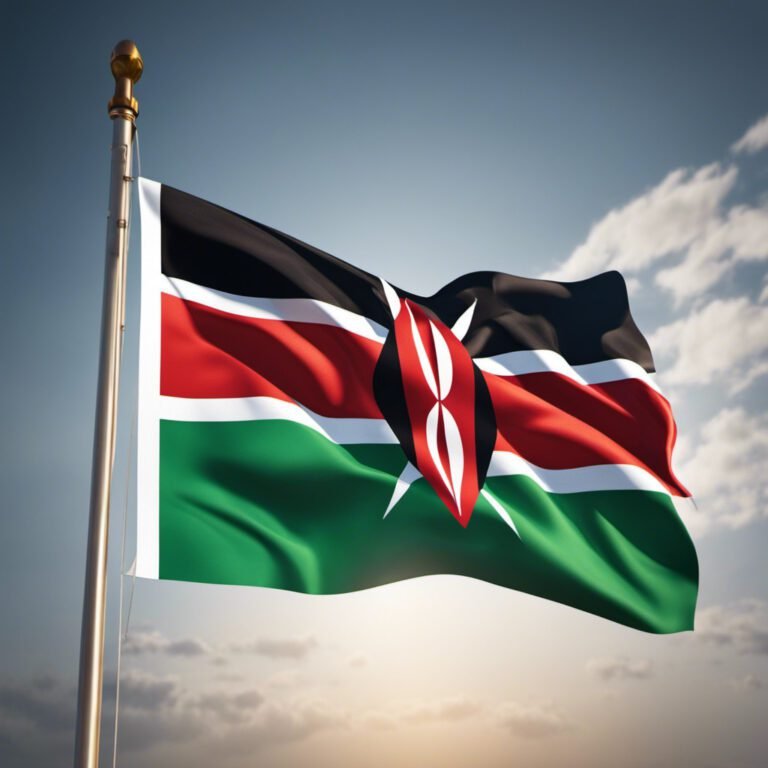What Was Kenya’s First Constitution As An Independent Nation?
In this article, you will learn about the fascinating history of Kenya’s first constitution as an independent nation. Delving into Kenya’s journey towards independence, we will explore the significant events and key players that shaped the drafting and implementation of this landmark document. From the intricate discussions in the constitutional conference to the final ratification, this constitution laid the foundation for Kenya’s democratic governance and set the stage for the country’s future development. Join us as we uncover the rich historical tapestry that defined Kenya’s early days as an independent nation.
Background
Kenya’s journey to independence was a significant moment in its history. After years of colonial rule under the British, the people of Kenya were eager to establish their own governance and shape their future. It was during this time that the need for a constitution became paramount, as it would provide the framework for a fair and just society.
Kenya’s Independence
On December 12, 1963, Kenya gained independence from British colonial rule. This historical event marked a new era for the country and its people. The struggle for independence had been a long and arduous one, with Kenyans fighting for their rights and freedom. The attainment of independence brought joy and a sense of pride to the nation.
Need for a Constitution
With independence finally achieved, the need for a constitution became evident. A constitution serves as a guiding document that outlines the rights, responsibilities, and limitations of the government and its citizens. It provides a framework for the functioning of a democratic society and ensures that power is not concentrated in the hands of a few individuals.
Constitutional Development
The development of Kenya’s first constitution was marked by various influences and historical events. Understanding these factors is crucial in comprehending the significance of the constitution.
Roman-Dutch Law
Kenya’s legal system has its roots in the Roman-Dutch law. This legal system was inherited from the colonial powers and made its way into the constitution. The influences of Roman law were evident in the legal framework established in the early years of independence.
Historical Influences
In addition to Roman-Dutch law, Kenya’s first constitution drew inspiration from various historical sources. The country’s rich cultural heritage and traditions played a pivotal role in shaping the constitutional development. The values and principles held by the people for generations were reflected in the constitution.
Constitution of Kenya Order in Council
The Constitution of Kenya Order in Council was enacted by the British government just before independence. This served as the interim constitution until Kenya could draft and adopt its own constitution. The Order in Council laid the groundwork for Kenya’s transition to self-governance and provided a temporary framework for the functioning of the nation.
Lancaster House Conference
The Lancaster House Conference was a crucial event in Kenya’s journey towards independence. It was during this conference that negotiations were held between the British government and Kenyan leaders to determine the terms of independence and the nature of the future constitution.
Preparation for Independence
Prior to the Lancaster House Conference, Kenyan leaders had been preparing for independence. They recognized the importance of a well-crafted constitution and worked diligently to ensure that their aspirations and vision for the nation were reflected in the final document.
Negotiations and Agreements
During the conference, negotiations took place between the British government and Kenyan representatives. Key issues were discussed, including the division of powers and the protection of human rights. Agreements were reached, setting the stage for a smooth transition to independence and the establishment of a new constitution.
Role of British Government
The British government played a significant role in facilitating the transition to independence. They recognized the aspirations of the Kenyan people and cooperated in the drafting and adoption of the new constitution. The support and guidance provided by the British government were instrumental in ensuring a peaceful transition of power.
Features of Kenya’s First Constitution
The features of Kenya’s first constitution encapsulated the aspirations and principles of the newly independent nation. These features played a crucial role in shaping the country’s governance and legal system.
Independence Day Proclamation
The Independence Day Proclamation marked the official adoption of the first constitution. It was a momentous occasion, symbolizing the culmination of years of struggle and marking the beginning of an era of self-governance.
Executive Power
The constitution defined the powers and responsibilities of the executive branch of the government. It delineated the roles of the president, the prime minister, and other executive authorities, ensuring a system of checks and balances.
Legislature
The constitution established the legislature, comprising of the National Assembly and the Senate. It outlined the powers and functions of the legislature, providing a platform for democratic decision-making and representation of the people.
Doctrine of Parliamentary Supremacy
Under Kenya’s first constitution, the doctrine of parliamentary supremacy prevailed. This meant that the parliament held the ultimate authority and could make and amend laws without any judicial interference. This doctrine ensured that the will of the people was reflected in the legislative process.
Human Rights and Fundamental Freedoms
The constitution enshrined the protection of human rights and fundamental freedoms. It recognized the inherent dignity and worth of every individual and guaranteed their rights to life, liberty, and property. This was a significant step in promoting equality and justice in the newly independent nation.
Judicial System
The first constitution established an independent judiciary, separate from the executive and legislative branches. This separation of powers ensured the impartial administration of justice and safeguarded against abuses of power.
Citizenship and National Symbols
The constitution defined the criteria for citizenship and established the national symbols of Kenya. It provided a sense of identity and unity among the diverse population of the country and emphasized the importance of national pride.
Impact and Significance
Kenya’s first constitution had a profound impact on the nation and played a significant role in shaping its trajectory.
Stability and Governance
The constitution provided a stable framework for governance, ensuring a peaceful transition to independence. It defined the roles and responsibilities of the government, enabling the smooth functioning of institutions and the implementation of policies.
Decolonization Process
The adoption of a constitution marked the completion of the decolonization process in Kenya. It severed the ties with the British colonial administration, signifying the newfound autonomy of the nation and its people.
Transition to a Republic
Kenya’s first constitution laid the groundwork for the transition from a dominion to a republic. It provided the structure and guidelines for the establishment of a republican form of government, with a president as the head of state.
Foundation for Subsequent Constitutions
The first constitution served as the foundation for subsequent constitutions in Kenya. It established the legal framework on which future amendments and revisions were built, providing a basis for the evolution of constitutionalism in the country.
Amendments and Repeal
Over the years, Kenya’s first constitution went through various amendments and underwent complete repeal and replacement.
Amendments during the First Republic
During the First Republic from 1963 to 1978, several amendments were made to the constitution. These amendments reflected changing political dynamics and addressed various aspects of governance and administration.
Effect of Subsequent Constitutions
Subsequent constitutions in Kenya built upon the foundation established by the first constitution. Each new constitution brought with it changes and revisions, reflecting the evolving needs and aspirations of the Kenyan people.
Repeal and Replacement
The first constitution was eventually repealed and replaced by subsequent constitutions. While the specific reasons for the repeal may vary, it is an inherent characteristic of constitutional development to adapt to changing circumstances and demands.
Contemporary Viewpoints
Kenya’s first constitution, like any other constitutional document, has faced critiques and challenges over the years. However, historical reflections and a consideration of its relevance in modern Kenya shed light on its enduring significance.
Critiques and Challenges
Some critics argue that the first constitution did not adequately address certain issues or protect certain rights. They contend that it was a product of its time and may not align with contemporary understandings of governance and human rights.
Historical Reflections
However, it is crucial to view the first constitution through a historical lens. At the time of its adoption, it represented a significant step towards self-governance and marked a departure from colonial rule. Historical reflections allow us to appreciate the context and challenges faced by the framers of the constitution.
Relevance in Modern Kenya
While the first constitution has been replaced, it still holds relevance in modern Kenya. It serves as a reminder of the country’s historical journey towards independence and the values and principles enshrined in the early days of nationhood.
Legacy of Kenya’s First Constitution
The legacy of Kenya’s first constitution is vast and far-reaching. Its impact can be seen in various aspects of Kenyan society and governance.
Pioneering Independence
Kenya’s first constitution embodies the spirit of independence and marks the culmination of the struggle against colonial rule. It stands as a testament to the determination and resilience of the Kenyan people.
Shaping Kenya’s Legal System
The first constitution played a significant role in shaping Kenya’s legal system. It laid the groundwork for the establishment of the judiciary, defined the powers of the executive and legislative branches, and set the stage for the development of constitutional jurisprudence.
Symbol of National Identity
Kenya’s first constitution is a symbol of national identity. It represents the shared values, aspirations, and struggles of the diverse population of the country. Through its provisions and principles, it unifies the nation and fosters a sense of pride and belonging.
Comparative Analysis
A comparative analysis of Kenya’s first constitution provides insights into its unique characteristics and its influence on constitutionalism in Africa.
Comparable African Constitutions
Comparisons can be drawn between Kenya’s first constitution and constitutions of other African nations that gained independence around the same time. These comparisons reveal similarities in the aspirations and principles outlined in these constitutional documents.
Influence on Post-Colonial Law
Kenya’s first constitution had a significant influence on the development of post-colonial law in Africa. As one of the first African countries to gain independence, Kenya’s constitutional framework served as a model for other nations as they crafted their own governance systems.
Lessons for Constitutionalism
Kenya’s first constitution offers valuable lessons for constitutionalism in Africa and beyond. It showcases the importance of inclusive participation, the protection of human rights, and the need for a dynamic legal framework that adapts to evolving social, political, and economic circumstances.
Conclusion
Kenya’s first constitution as an independent nation holds immense historical significance and continues to shape the nation’s trajectory. It represented a crucial milestone in the decolonization process and provided the foundation for Kenya’s legal system and governance. While it has gone through amendments and repeal, its legacy lives on in subsequent constitutions and in the hearts and minds of the Kenyan people.
Continued Impact
The impact of Kenya’s first constitution extends beyond its adoption. It serves as a reminder of the nation’s journey towards independence, the values and principles that underpin its governance, and the enduring importance of a well-crafted constitution. As Kenya continues to grow and evolve, the first constitution’s significance will endure, guiding the nation towards a prosperous future.






